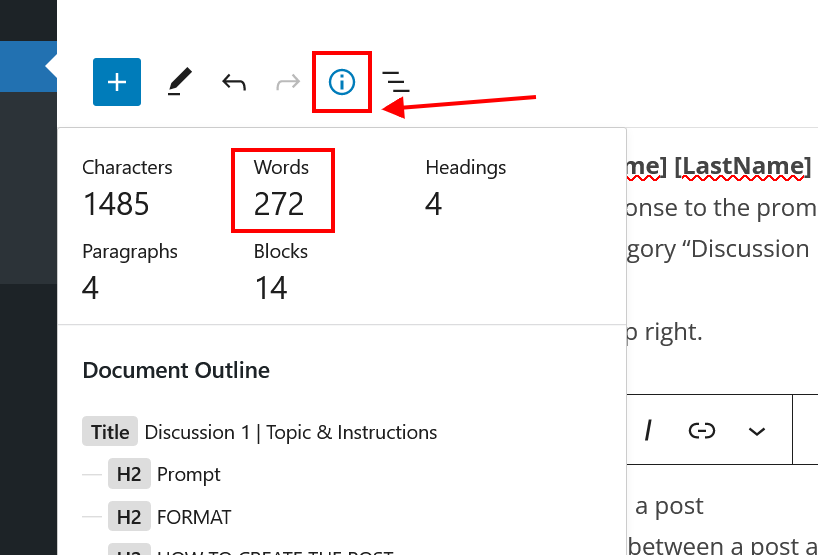Discussion #4 Prompt
After you have completed the readings, watch this What is Privilege video. This is a video of an exercise often used in workshops and courses to explore how privilege and oppression intersect.
After watching the video, answer the following questions:
- In what ways do you experience privilege?
- In what ways do you experience oppression?
- How does watching this video and doing the readings help you define the concepts of privilege and oppression and what are your current definitions (it’s OK to quote directly from the readings and/or use their definitions.
Format Requirements
- Due: Wednesday February 23, 11:59 pm.
- Written in complete, well-formed sentences & carefully proofread
- Engaged with the assigned text by explicitly referring to and/or citing them
- 400-600 words. Longer, but not shorter, posts are fine. To view your word count, click the info symbol at the top of the post draft!

How to Create the Post
- 1) Click on the black plus sign in a white circle at the very top of the site (in the black bar) to start the post draft:

- 2) In the title box, type the title “[FirstName] [LastName] Discussion 4“.
- 3) In the body of the post, type your response to the prompt.
- 4) On the right side, choose the post category “Discussion 4.” Your post will not publish without a category.
- 5) Click the blue Publish button on the top right.
More Help:
- Here is a video tutorial on how to publish a post.
- If you want to understand the difference between a post and a comment, see this help document.